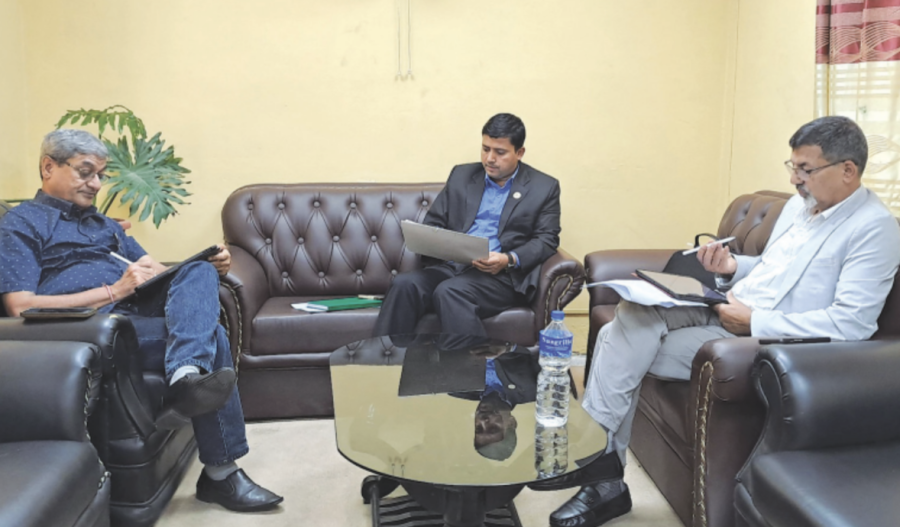National
Leaders claim deal near on reduced sentencing for insurgency-era crimes
House panel members say all contentious issues will be resolved soon.
Post Report
Despite the change in the ruling alliance, the three major parties agreed on Wednesday to continue the joint effort to finalise the bill to amend the Enforced Disappearances Enquiry, Truth and Reconciliation Commission Act.
A meeting of a three-member panel comprising Ramesh Lekhak from the Nepali Congress, CPN-UML’s Mahesh Bartaula and Janardan Sharma from the CPN (Maoist Centre) held discussions to resolve the contentious provisions. Definition of the murder, issue of minor Maoist soldiers and reduction in the sentencing were the major issues the three leaders discussed. They also tried to find a solution on whether or not the victims who refuse to reconcile should take their cases to court.
“Among the four issues, we are very close to resolving the issue of reduced sentencing,” said Bartaula. “I am confident that we can reach an agreement after a couple of sittings.”
Two other leaders echoed Bartaula saying the meeting was very positive. “Our meeting concluded on a very positive note. We will resolve all the contentious issues very soon,” said Sharma.
Resuming the discussion on the transitional justice process that had stalled after the formation of the UML-Maoist coalition in March first week, the top leaders from the three parties, on June 28, had formed a three-member committee for discussions. Three days later, on Monday, the Congress and the UML decided to form a coalition government ousting Prime Minister Pushpa Kamal Dahal. The UML has already withdrawn its support to Dahal leaving him with two options—resign or seek a vote of confidence.
“After today's meeting, I am confident that the bill will be endorsed from the ongoing session,” said Bartaula. The amendment bill is currently under consideration in the Law, Justice and Human Rights Committee of the House of Representatives.
The amendment bill was registered in the lower house in March last year and sent to the House committee for finalisation. However, differences persist.
After over a year of discussions, the parliamentary committee narrowed down the differences to four points. There had been a border agreement on two points—to list arbitrary killings as serious violation of human rights (thus non-amnestiable), and to open the doors for the victims, who refuse to reconcile, for prosecution.
The House panel had been struggling to decide whether to categorise arbitrary killings or all killings except those that occurred in clashes as serious violations of human rights. It has also been unable to settle what happens in case the victims of human rights violations refuse to reconcile. Addressing the concerns of those affected by the conflict even if they were not directly involved and providing justice to Maoist child soldiers are among the most contentious issues. The Maoist Centre is unwilling to include the issue of child soldiers in the Act.
The delay in amending the Act has left the Truth and Reconciliation Commission and the Commission for the Investigation on Enforced Disappeared Persons paralysed for around two years.
In July 2022, the Deuba government decided to extend the terms of the commissions without retaining their chairs and members. Despite the government’s claim that the amendment bill would be endorsed by October 2022, which would also open the door for recruiting new office bearers, there has been no progress even after the latest extension.
The government is preparing to give a new lease of life to the commissions whose terms are set to expire on July 15. Though a task force led by former Chief Justice Om Prakash Mishra has been formed to nominate candidates for office bearers in the commissions, it has yet to start its work.
Conflict victims and human rights defenders are demanding that appointments be made only after amending the Act.




 18.12°C Kathmandu
18.12°C Kathmandu













